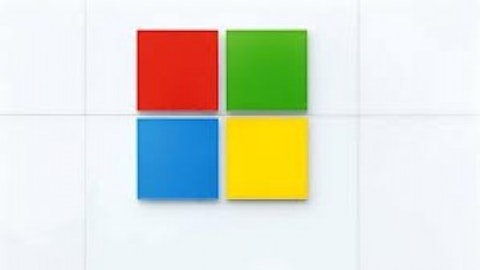Editor’s Note: Related tickers: Facebook Inc (NASDAQ:FB), Microsoft Corporation (NASDAQ:MSFT), Google Inc (NASDAQ:GOOG)
Most investors think of the tech world in terms of financial metrics, product roadmaps, and analyst estimates alone, but there’s one area that is often overlooked, which has an important factor on any company’s future: the courtroom. From patent lawsuits to the more monotonous cases described below, these battles occur beneath the underbellies of the tech titans, but are still important for investors to be aware of.
Facebook victory
Facebook Inc (NASDAQ:FB) was the latest major tech company to take on “typosquatters” or “cybersquatters,” and after some mixed results by a couple brethren Microsoft Corporation (NASDAQ:MSFT) and Google Inc (NASDAQ:GOOG)—more on that below. Facebook Inc (NASDAQ:FB) CEO Mark Zuckerberg has struck a blow in favor of the tech giants, of whom many of these “squatters” try to take advantage simply by having bad or fast spellers on keyboards.
A federal court ruled in favor of Facebook Inc (NASDAQ:FB), awarding it more than 100 domain names and about $2.8 million in damages in a case against several “typosquatters,” who had created a number of domains based on the misspelling of facebook.com and profiting from those mistakes by users. Some of the offending domains that will now be controlled by Facebook Inc (NASDAQ:FB) include “gacebook.com” and “dacebook.com.” Some of these domains wound up directing traffic away from Facebook and onto suspicious or malicious web sites.
“We are pleased with the court’s recommendation. We will continue to use all the tools at our disposal to enforce against those who attempt to take advantage of the people who use our service,” said Facebook Inc (NASDAQ:FB) attorney Craig Clark in a statement.
Facebook Inc (NASDAQ:FB) has been an active crusader against typosquatters, having collected a number of other domains totaling in the hundreds in past cases. This, however, is believed to be the first case that involved a judgment of liability damages being paid. If this precedent holds in the future, the lucrative underground business of typosquatting might become endangered.
While Facebook Inc (NASDAQ:FB) has had a series of victories against these cyberpirates, as they are sometimes called, other companies have had mixed results.
A couple not-so-lucky cases
Microsoft Corporation (NASDAQ:MSFT) was involved in a pretty famous typosquatting case, when Canadian teen and part-time web designer Mike Rowe decided to create the domain name of MikeRoweSoft.com for his business. Microsoft at first offered the young man $10 for his fun, but Rowe decided to hold out for more. Since Microsoft Corporation (NASDAQ:MSFT) was able to paint Rowe as someone looking to profit from the domain by selling it to Redmond, the company got a cease-and-desist order against Row. Now that domain leads to a Bing search page with “Microsoft vs. MikeRoweSoft” at the top.
Google Inc (NASDAQ:GOOG) was also involved in a similar case, but that turned out a little differently.In another situation, Google lost a typosquatting case last summer against the owner of the site Oogle.com. Google filed a claim against Oogle.com, which was a domain that led users to porn sites. Google Inc (NASDAQ:GOOG) claimed it was easy for users to misspell google.com and go to the adult site, but the owner of the Oogle.com domain was able to argue successfully – though the National Arbitration Forum had “suspicions” about the claim – that he registered the domain before Google had become so popular. Google Inc (NASDAQ:GOOG) lost the case because it was unable to prove bad faith” on the part of the Oogle.com owner to register its own domain, which was a critical factor in ruling that a case of typosquatting had occurred. So Oogle.com was allowed to remain.
Microsoft battle
Microsoft Corporation (NASDAQ:MSFT) is, of course, one of the big boys in tech, so it’s no surprise that it has lots of attorneys on staff to defend patent rights and claims in various courtrooms around the world. Redmond has had its share of legal scraps involving patents, as well as trademarks, including a notorious case against a Canadian teenager who wanted to call his web-design business web site MikeRoweSoft.com. The company, like others, has been aggressive in fighting off these various attacks. Now, however, it seems that Redmond will be facing a new attack that involves its newly acquired videoconference platform, Skype.
Skype has been around for a few years, so the timing of this suit seems strategic, but Web Conference Encryption, which is affiliated with Copytele, has filed a patent infringement suit against Microsoft Corporation (NASDAQ:MSFT), claiming that the Skype video-conferencing service uses a couple of patents from the 1990s that are used for e-mail attachments and telecommunication security on a video conference. WCE is seeking, through Copytele, some royalties and licensing fees for the patents, which are claimed to be used by any smartphones that uses Skype or any similar conferencing software.
In defense of the suit against Microsoft Corporation (NASDAQ:MSFT), we can only presume that Copytele is being accused of being a “patent troll” – Copytele CEO Robert Berman said, “Copytele’s contention is that they have just as much right to assert their patents as any big company, and that the “Troll” controversy is an illusion created by large companies to further influence the patent laws to their advantage.”
As this lawsuit was only filed in federal court on the last day of April, naturally Microsoft is not commenting on the suit at this point.
What can investors do at the moment?
Obviously, courtroom battles aren’t the only thing that should affect a shareholder’s investment decision, but it’s worth pointing out a few basic metrics about this trio. From a valuation standpoint, Microsoft Corporation (NASDAQ:MSFT) investors appear to have the best play, as shares trade at a forward earnings ratio below 11.0x, though looks can be deceiving. Shares of the tech giant also sport a PEG ratio—which measures how Mr. Market is valuing expected EPS growth—near 2.0, above Google Inc (NASDAQ:GOOG) (1.6), but below Facebook Inc (NASDAQ:FB) (93.9).
With an expected EPS growth clip of nearly 30% a year over the next half-decade, growth investors would obviously much rather have Facebook Inc (NASDAQ:FB)—as if its sky-high valuation didn’t suggest elevated growth already—as Google Inc (NASDAQ:GOOG)(15.5%) and Microsoft Corporation (NASDAQ:MSFT) (8.5%) have forecast trajectories much more in line with peer averages.
An evenly mixed basket of this trio may be the best way to go, and other, more specific strategies may be best considered as well. On the whole, though, it’s crucial for investors to watch how tech giants are behaving in the courtroom, as it could play a meaningful effect on their futures.
Disclosure: none



